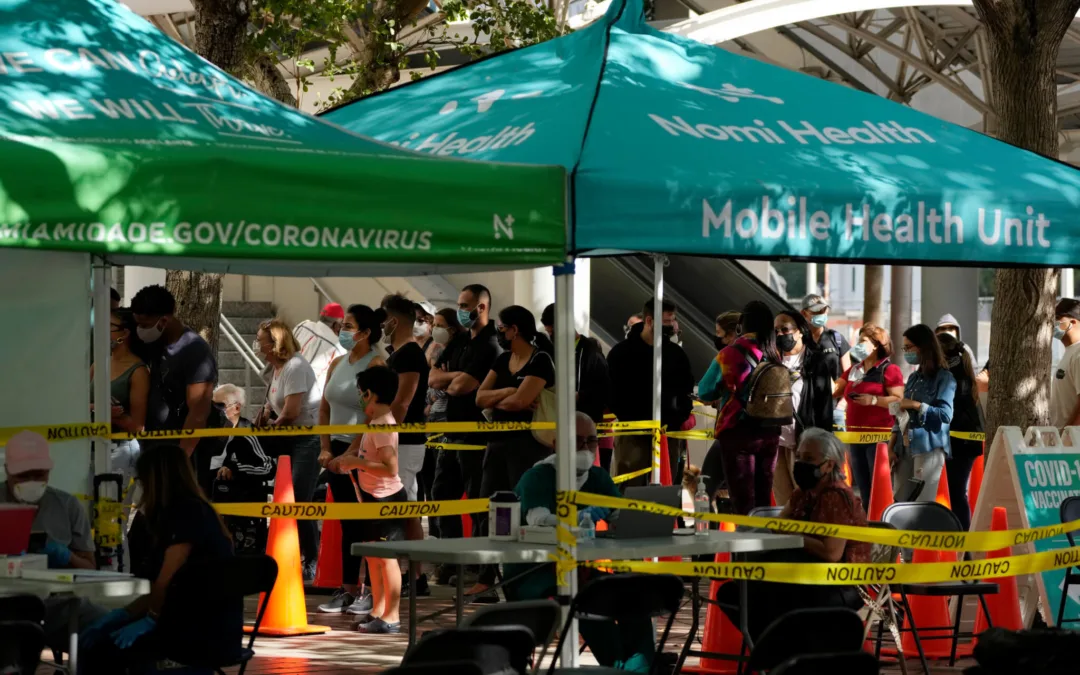
Image via Shutterstock
Millions of students nationwide depend on free- and reduced-price breakfasts and lunches, and there is no single plan to address what could be an enormous food insecurity crisis for America’s youth.
More than 15 million students across the United States will no longer go to school as six states and dozens of cities have completely suspended classes amid the ever-expanding coronavirus outbreak.
Virginia Gov. Ralph Northam and Pennsylvania Gov. Tom Wolf became the latest state leaders to order schools closed on Friday, following similar efforts from governors in Maryland, Michigan, New Mexico, Ohio, Oregon, and West Virginia. Kentucky’s Gov. Andy Beshear also called on schools to suspend in-person classes, though stopped short of issuing a formal order. Cities like Atlanta, Houston, Los Angeles, San Francisco, and Seattle have also closed their entire school districts.
The closures, which currently vary in length from two to four weeks, have raised concerns about what will happen to those students who depend on schools for their meals.
There are nearly 22 million students nationwide who depend on free- and reduced-price breakfasts and lunches and there is no single plan to address what could be an enormous food insecurity crisis for America’s youth.
“We are extremely concerned, there is not a county across this country that’s free of child food insecurity and nationally,” Lisa Davis, senior vice president of the No Kid Hungry campaign, told COURIER. “School closings are causing a lot of anxiety for families and will certainly increase hunger.”
She wasn’t alone in sounding the alarm.
“We are facing huge nutrition and hunger issues if our country has to close school districts,” Mara Fleishman, CEO of the nonprofit Chef Ann Foundation, said in an emailed statement.
This concern has led high-poverty school districts, such as New York City, to keep their schools open, but even there, pressure is building for city leaders to announce a shutdown. Such a shutdown could be devastating for New York’s most vulnerable. Of the city’s 1.1 million students, 750,000 live at or below the poverty line, including 114,000 who are homeless.
Some school districts have announced they will continue providing meals at the physical school buildings, while others have set up grab-and-go and drive-thru style systems, but there’s no universal Meals on Wheels-style system for delivering food to low-income students’ residences.
“I think the bottom line for this is during this pandemic, we need to make sure that kids who have been getting meals at school are now getting meals at home,” Davis said.
The U.S. Department of Agriculture has provided some flexibility and is allowing schools to switch to programs used in the summer months that serve feeding low-income children. In Washington and California, the USDA is also waiving requirements for students to eat in group settings, which will allow school districts to serve meals at off-campus sites such as libraries and churches. But those waivers only apply to areas where more than 50% of students qualify for subsidized meals, creating a situation where individual, high-poverty schools may be excluded because their surrounding area doesn’t meet the threshold.
“We are facing huge nutrition and hunger issues if our country has to close school districts.”
“The flexibility on federal regulations does not go far enough; our states need to be empowered to support communities of need as need arises—not just communities that have a 50% or higher free and reduced eligibility rate,” Fleishman said. “We have to remove the layers of bureaucracy so the Departments of Education and school districts have the funding and flexibility they need to support their communities.
Davis said the USDA’s efforts were a “good first step,” but agreed that more flexibility was required and called on Congress to step up and take action.
“The front line is SNAP,” Davis said, referring to the Supplemental Nutrition Assistance Program, more commonly known as food stamps. She urged members of Congress to pass the House Democrats’ bill, which would increase SNAP benefits for low-income Americans.
The Families First Coronavirus Response Act, which is likely to be voted on in the House on Friday, would expand SNAP and provide additional money for low-income families to purchase healthy food while their children are stuck at home. Davis said passing a SNAP expansion is critical to helping food insecure children.
“SNAP has the scale and the scope that is greater than what we can do through school-delivered or grab-and-go meals or community meals,” Davis said. “So many communities are being hit. Congress needs to take action now to give those communities all the resources and tools in the tool kit to make sure we’re not letting kids fall through the cracks and go hungry.”
The legislation would also make it easier for families who don’t currently receive SNAP benefits to access food assistance during the coronavirus outbreak. Davis believes the federal government needs to provide direct help to these families, but also wants flexibility so that local leaders can determine how to best respond and tailor their programs to the community’s needs.
“There’s a lot of innovation out there across the country, and we just need to make sure that we’re removing barriers and arming them with the resources that they need,” Davis said.
But in order to do that, Congress needs to pass the legislation first. House Republicans have appeared reluctant to pass the Democratic bill, which also guarantees free coronavirus tests for everyone who needs a test, paid sick leave, and expanded unemployment insurance. Senate Majority Leader Mitch McConnell (R-KY), meanwhile, attacked the bill on the Senate floor Thursday before skipping town to attend an event celebrating a conservative judge in Louisville, Ky.
The Senate’s decision to take a three-day weekend in the midst of a pandemic means that even if the House passes the bill Friday, the Senate won’t take it up until next week, which will further delay benefits for millions of American children who rely on school meals.
Davis urged ordinary citizens to take action and pressure Congress to pass the legislation.
“Ask Congress to get this done and make sure that the schools and community organizations that are ready to go have the tools and resources that they need,” she said. “If there has ever been a time for Congress to put partisan bickering aside and come together, I think feeding kids during this pandemic is the time.”
Politics

Teamsters and UPS Reach Tentative Deal to Avoid Strike, 340,000 Workers to Get Raises
The tentative deal represents a huge win for full- and part-time UPS Teamster workers, who would get significant pay raises and better working...



One Republican Senator Is Blocking 265 Military Promotions, Leaving the Marines Without a Confirmed Leader
Sen. Tommy Tuberville's decision means these military officers are not getting the pay raises they’re owed, cannot move their families to wherever...
Local News



Teamsters and UPS Reach Tentative Deal to Avoid Strike, 340,000 Workers to Get Raises
The tentative deal represents a huge win for full- and part-time UPS Teamster workers, who would get significant pay raises and better working...



One Republican Senator Is Blocking 265 Military Promotions, Leaving the Marines Without a Confirmed Leader
Sen. Tommy Tuberville's decision means these military officers are not getting the pay raises they’re owed, cannot move their families to wherever...




